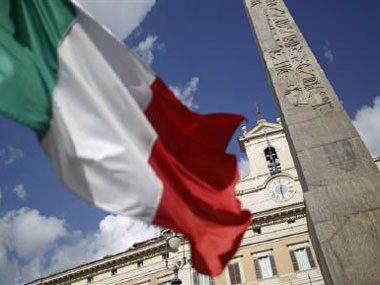Italian Prime Minister Silvio Berlusconi is resisting intense market and political pressure to resign but he appears to have lost his majority in parliament, meaning he will be forced to go soon. Here are some questions and answers about how Italy’s political crisis is likely to play out: Will Berlusconi survive? This seems unlikely. Even his closest allies are telling him publicly to go, Italy’s bond yields threaten to spiral out of control and, most importantly, the number of party rebels are increasing and he no longer has a majority. When will he resign? [caption id=“attachment_126509” align=“alignleft” width=“380” caption=“Reuters”]  [/caption] This is less clear. It is possible he will resign after a parliamentary vote on public finances on Tuesday afternoon. He will win the vote because the opposition intends to abstain but it will still show that he has no absolute majority. However, it seems more likely that he will not quit until he loses a formal vote of confidence. The opposition plans to present a no-confidence motion in the next few days, but it might not take place until next week. What will happen when he steps down? President Giorgio Napolitano will consult with party leaders to see if a new leader can muster enough support in parliament to form another government to pass crucial reforms before the next election, scheduled for 2013. Names often cited to lead such a government include former European Commissioner Mario Monti and Berlusconi’s closest aide, Gianni Letta. It may be made up of either unelected technocrats or politicians, and Napolitano’s hope is that it will win broad backing from most of the parties in parliament. Will it succeed? This is highly uncertain. Berlusconi says if he goes the only alternative is elections. Even after numerous defections, his People of Freedom (PDL) party is probably the largest in parliament and, without the votes of the PDL and its ally the Northern League, it seems doubtful that a new government could be formed. Despite his public posturing, Berlusconi may actually be willing to support a new government, but only if it is led by Letta or another close ally. However, the leftist and centrist opposition has already said it will not accept this. It is conceivable but by no means certain that if someone like Letta takes over from Berlusconi then many PDL rebels may return, leading to a new government with a new leader but the same parliamentary majority as before. This is unlikely to be welcomed by markets. What about elections? If there is insufficient support for a new government Napolitano will be forced to call elections. These could be held in January at the earliest. In the meantime Berlusconi would remain in power as caretaker prime minister. Who would win? Polls suggest the centre-left would win, but Berlusconi’s demise would open up major upheaval in Italian politics and the election would be fiercely contested and unpredictable. For example, no one now has any idea who would be the candidate for prime minister for either coalition. The centre-right coalition that won the last election failed to stick together or pass key reforms, but the centre-left is a broad grouping of highly disparate parties, with no obvious leader or agreement over the reforms needed to get Italy out of its crisis. Reuters
It seems more likely that Berlusconi will not quit until he loses a formal vote of confidence.
Advertisement
End of Article
Written by FP Archives
see more


)

)
)
)
)
)
)
)
)



